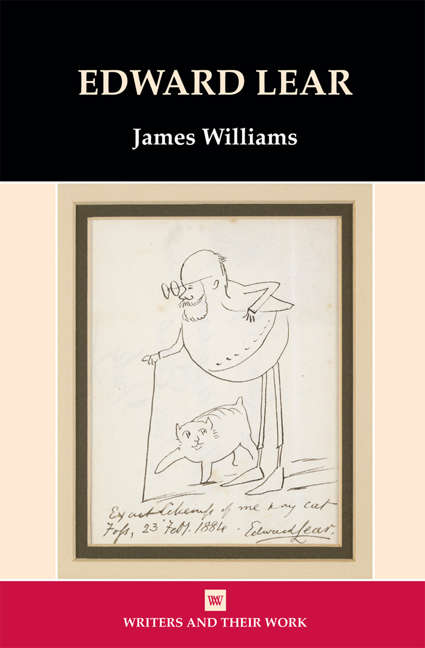4 - The Morbids
Summary
NEVER…AGAIN
In the previous chapters I have argued that reflections on difference, distance, and strangeness – shifts and movements between stages of life, species, places and cultures – shaped Lear's imagination and his poetry. At every turn these sources of inspiration have been shown to generate delight and invention, but also to be sources of melancholy and regret. If the difficulties and possibilities of writing for children shaped Lear's developing poetic language, this went hand in hand with the consciousness of age and mortality; if animals made it possible for Lear to imagine different ways of being human, they were also reminders of the limitation of particular forms of embodiedness; and if Lear derived a restless, roving energy from his experiences of travel, there is usually an ambivalent sense of entropy too, centred on the figure of the person left behind. Throughout his work, the shapes of Lear's creativity cast their dark shadows. This chapter tries to understand how these shadows are a creative dimension of his poetry in their own right, and how, taken together, they might suggest another way in which his writing hinges on strangeness: the experience of being self-estranged, at odds with or out of harmony with oneself.
When Lear – the King, not the poet – asks ‘who is it that can tell me who I am?’, his Fool replies ‘Lear's shadow’. Edward Lear, who at different times imagined himself as both King and Fool, had his own shadow: a lifelong depression which he called his ‘morbidness’ or ‘the Morbids’. Like ‘the Demon’ (his epilepsy), ‘the Morbids’ are a regular character in the dramatis personae of Lear's diaries and letters. Their origins go back almost to the beginning of Lear's life. His diary for 1877 contains a passage which is tantalizing in its implications for his art:
The earliest of all the morbidnesses I can recollect must have been somewhere about 1819 – when my Father took me to a field near Highgate, where was a rural performance of gymnastic clowns &c. – & a band. The music was good, – at least it attracted me. – & the sunlight & twilight I remember as if yesterday. And I can recollect crying half the night after all the small gaiety broke up – & also suffering for days at the memory of the past scene. (Life 8)
- Type
- Chapter
- Information
- Edward Lear , pp. 107 - 140Publisher: Liverpool University PressPrint publication year: 2018



